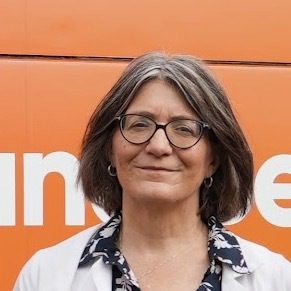Opinion: Affordable health care is just common sense
A Wisconsin doctor shares decades of patient stories in a column explaining why Congress must protect the Affordable Care Act and the Legislature must join 40 other states to strengthen Medicaid coverage for of working families.
As a primary care physician in Wisconsin for the past 35 years, I have cared for people with and without insurance. My message is simple: medical care is better at preventing and treating disease when people have insurance coverage. That can come through their employer, through Medicare, through low-income protection programs like Medicaid, and through the Affordable Care Act (ACA), which provides options for everyone who falls through the cracks.
Access to health care is at the heart of these elections at all levels of government, from Wisconsin state representatives, to Congress, to the Presidency. The stakes are high: saving the Affordable Care Act, preserving women’s reproductive health options, and in Wisconsin, an important opportunity to expand Medicaid.
Let’s consider the need to save the Affordable Care Act. Julie was a patient of mine who had good insurance through her home employer in Milwaukee when we were diagnosed with a rare but treatable endocrine disorder. He then had to quit his job to take care of his elderly mother. Without insurance he stopped his treatment and his symptoms worsened, so he went to the ER frequently or urgent care – a very expensive and ineffective way to get care, but it’s often only an option for the uninsured. He eventually got ACA coverage and got his treatment back, but he was stuck for years paying off medical debt.
Before 2014, when the ACA went into effect, patients like Julie with pre-existing conditions had a choice of expensive, high-cost health plans that were does not cover preventive care. The ACA has many benefits for Americans, but preventing insurers from denying coverage to people with pre-existing conditions is critical. The ACA also mandates no co-pays for preventive care, such as Pap smears, cancer screenings and vaccinations. Let’s remember that Sen. Tammy Baldwin introduced a popular provision of the ACA that allows young adults to stay on their parents’ insurance until age 26, allowing them to work for themselves without risking medical liability.
We also voted for sink-or-swim Medicaid expansion for low-income people. At the free clinic in Janesville I saw Susie, a nursing assistant with two small children at home. During the epidemic, he qualified for Medicaid and was able to manage his diabetes. Last month when I saw him he was still off medication as of early 2024 after Medicaid “rolled” him into the uninsured pool. He had visited the ER after recovering from work with high blood sugar. We put together a treatment plan, it wasn’t as much as what he would get through insurance, but it has periodic procedures, limited free care and expensive emergency care.
Wisconsin has a special opportunity with this election to finally join the 40 states that took advantage of the ACA’s provisions to expand Medicaid up to 138% of the federal poverty level – that’s an annual income of $20,783 per person and $35,632 for a family of three in 2024 — an opportunity that Wisconsin’s legislative leadership blocked a decade ago. Surprisingly, Wisconsin is one of only two states that did not adopt recommendations to extend postpartum Medicaid coverage to 12 months after delivery for mothers. they become teenagers, a time of high risk when access to care has many benefits for babies and mothers.
This uncertainty has cost Wisconsin tens of millions of dollars from the federal government to support Medicaid funding. There is no evidence to support the claim that expanding Medicaid will prevent people from working, according to a report by the Wisconsin Policy Forum. And expanding Medicaid will save money for Wisconsin taxpayers!
Although I am dismayed by this financial irresponsibility, as a physician I am pleased with the good evidence that Medicaid access improves the treatment of chronic conditions such as cancer, diabetes and mental health, reduces mortality , and improve the rural health experience. Although Wisconsinites across the state will benefit from Medicaid expansion, the impact will be greatest in rural areas.
Common sense tells me that it’s better for all of us if people don’t go into debt for their appendectomy; when the loving choice to have a child does not involve calls from the collection center; when early breast cancer is detected on a screening mammogram instead of becoming an ulcerating tumor. Common sense (and a lot of data) tells me that helping the poorest among us access medical care won’t keep people from working to pay rent, utilities and grocery bills. Common sense tells me that getting medical care to maintain good health helps people stay active.
Above all, common sense tells me that Wisconsin voters want their families and neighbors to be healthy. We need our elected officials to support and improve the Affordable Care Act and commit to Medicaid expansion in Wisconsin.
#Opinion #Affordable #health #care #common #sense
